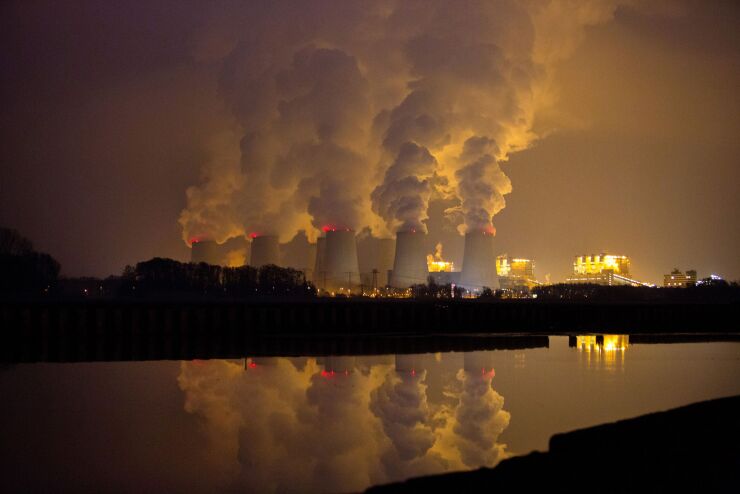Europe and the U.S. should jointly adopt a carbon tax on imports as a means to promote low-emission production globally, according to the leaders of Germany’s Greens, the country’s No. 2 political force.
The European Union is drafting a law, to be unveiled by June, that would start penalizing imports of certain goods from countries with weak pollution rules, thereby helping protect the competitiveness of local producers abiding by stricter standards.
Inviting the administration of President Joe Biden to join a “transatlantic alliance for climate neutrality” would do more to enforce the Paris climate accord “than any other partnership worldwide,” the joint party leaders Annalena Baerbock and Robert Habeck wrote in a policy paper seen by Bloomberg News and the Frankfurter Allgemeine Zeitung.

The Greens are the second-most popular party in German voter polls and will make a bid in September elections to replace Chancellor Angela Merkel after 16 years in power. By late spring, the party will decide whether Baerbock or Habeck will become the candidate.
The carbon levy is part of a broader proposal by the Greens for a new transatlantic agenda that goes beyond climate to address, security and defense, as well as energy and tech firms.
“Only together can Europe and America globally form a democratic alternative to China’s authoritarian hegemonic aspirations and become an anchor of enlightenment, prosperity, and stability in the world,” write Habeck, 51, and Baerbock, 40.
The paper marks the informal beginning of an election campaign in Germany in which the Greens no longer want to be seen as a potential junior partner in a coalition, but as a major political force with its own right to govern. As such they want to showcase that they are no longer the niche climate party they were decades ago.
In a sign of changing times, just over a year ago Habeck said that then-President Donald Trump’s address at the World Economic Forum’s climate-themed conference in Davos was the
Even before Biden took office, the prospect of a global climate coalition between Europe and the U.S. raised expectations. Such an alliance would provide the Biden administration the best chance to reinvigorate the global fight against climate change, Simone Tagliapietra, a research fellow at the Brussels-based think tank Bruegel, said late last year.
The idea behind a carbon tax is to prevent what is called carbon leakage, where businesses potentially move from legislation with tough emissions standards to those with laxer rules or enforcement to lower their costs.
Currently the European Commission, the bloc’s executive arm, is considering three main options for the so-called Carbon Border Adjustment Mechanism: an import tax, an excise duty on emissions-intensive goods, a mechanism using the carbon price on the European Emissions Trading system as a benchmark.
Earlier in the week the head of the European Commission, Ursula von der Leyen, signaled she too was hoping to put climate front and center on the transatlantic agenda.
— With assistance from Ewa Krukowska





